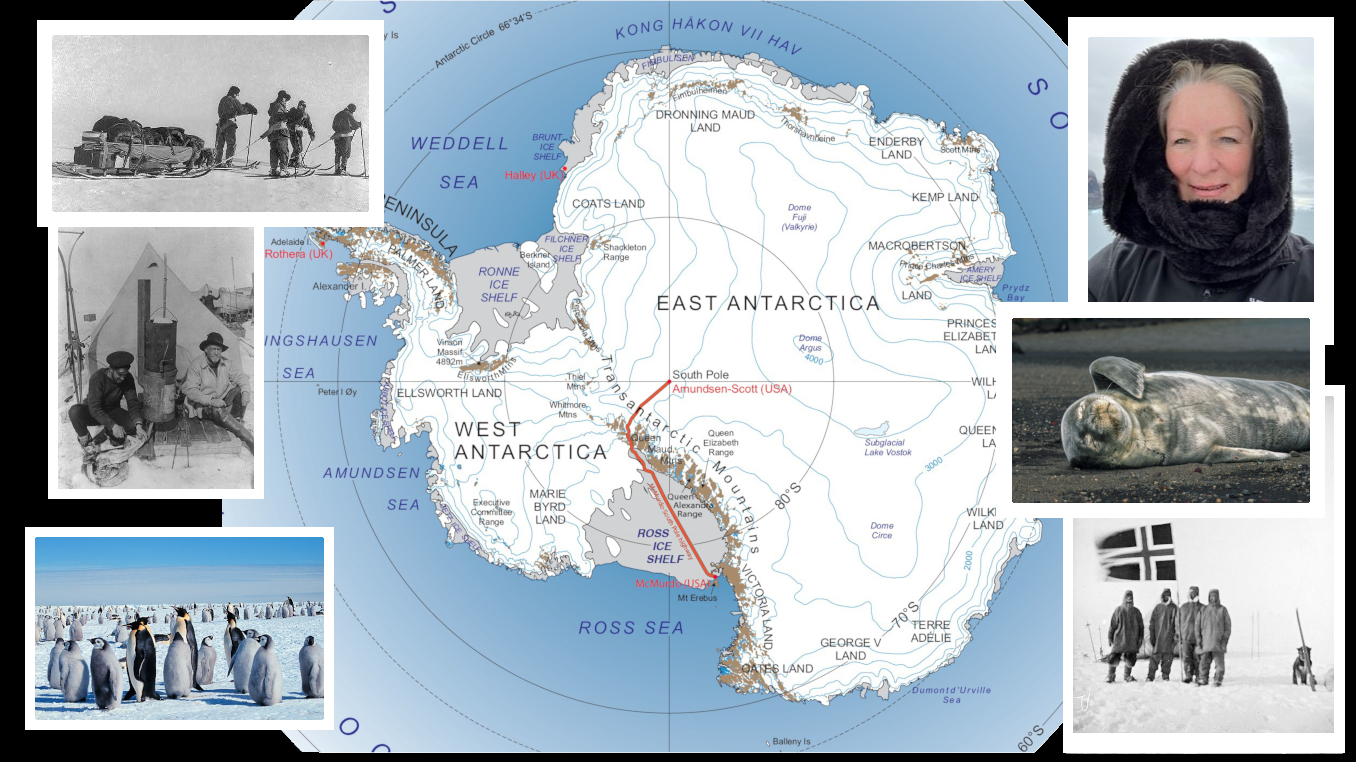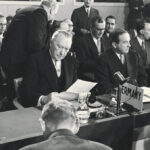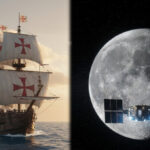
It’s time for part two of our Antarctica trip. In February 2023, Michele Devlin, Professor of Environmental Security at the U.S. Army War College, traveled to the Antarctica and took us along through a little technological sleight of hand. Armed with her trusty iPhone and a list of questions and topics for discussion, Michele documented her journey and her reactions along the way. In this second of two episodes, Michele is joined by Managing Editor Buck Haberichter in the virtual studio to explain the hows and whys of her trip. In part two Michele sums up her visit to Antarctica and ties it all together for national security professionals and honestly for everyone on the planet.
A large piece of a glacier happened to calve and fall off very close to where we were, probably within several hundred feet…and it created a significant tsunami that came rolling onto the beach within minutes where our group was staying and walking around and everyone had to escape very quickly up the hill and get away from it…we had two or three bouts of heavy waves, glacier tsunami waves, that washed their gear out into the sea.
Podcast: Download
Dr. Michele Devlin is Professor of Environmental Security at the U.S. Army War College. She coordinates the AWC Polar Bears, a student/faculty community of interest on Arctic environmental security issues. Dr. Devlin recently returned from spending six months living and working above the Arctic Circle on health and human security issues with indigenous families, climate migrants, remote villagers, and other unique populations residing in the U.S. High North.
Buck Haberichter is the Managing Editor of the War Room
The views expressed in this presentation are those of the speakers and do not necessarily reflect those of the U.S. Army War College, U.S. Army, or Department of Defense.
Photo Description: Clockwise starting top left: Members of the Terra Nova expedition at the South Pole: Robert F. Scott, Lawrence Oates, Henry R. Bowers, Edward A. Wilson, and Edgar Evans; Dr. Michele Devlin; Jerzy Strzelecki via WikiMedia; Oscar Wisting, Olav Bjaaland, Sverre Hassel and Roald Amundsen at the South Pole; Emperor penguins (Aptenodytes forsteri) are the only animals to breed on mainland Antarctica during the winter; Sir Ernest Shackleton, seated on right, and Mr. Frank Wild, skinning a fish, sitting in front of tent next to camp stove
Photo Credit: Map by Maximilian Dörrbecker; Clockwise starting top left: Herbert George Ponting via Library of Congress; Dr. Michele Devlin; Jerzy Strzelecki via Wikimedia Commons; Nasjonalbiblioteket via Wikimedia Commons; NOAA Corps Collection Photographer: Giuseppe Zibordi via Wikimedia Commons; Underwood & Underwood via Library of Congress




